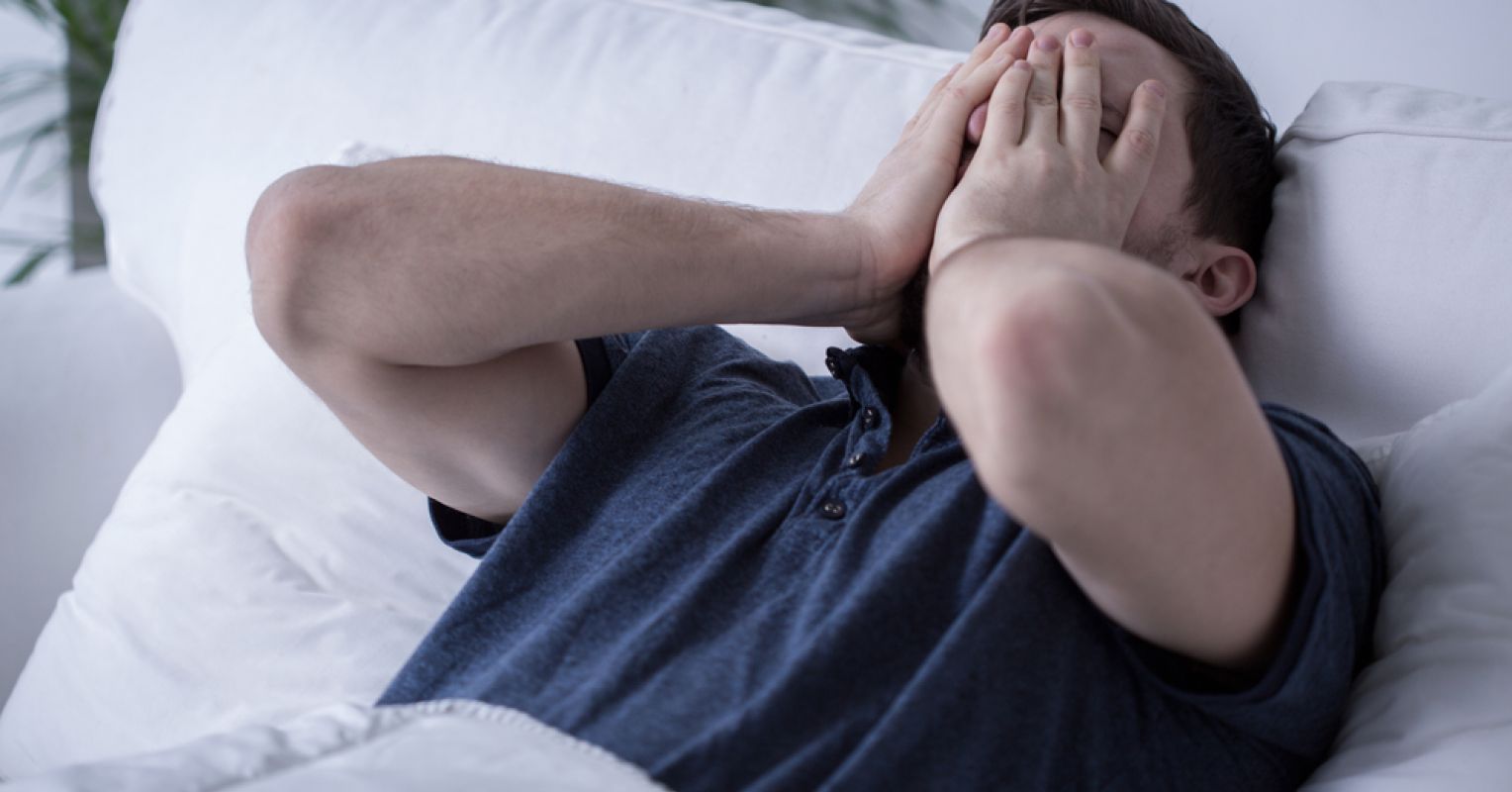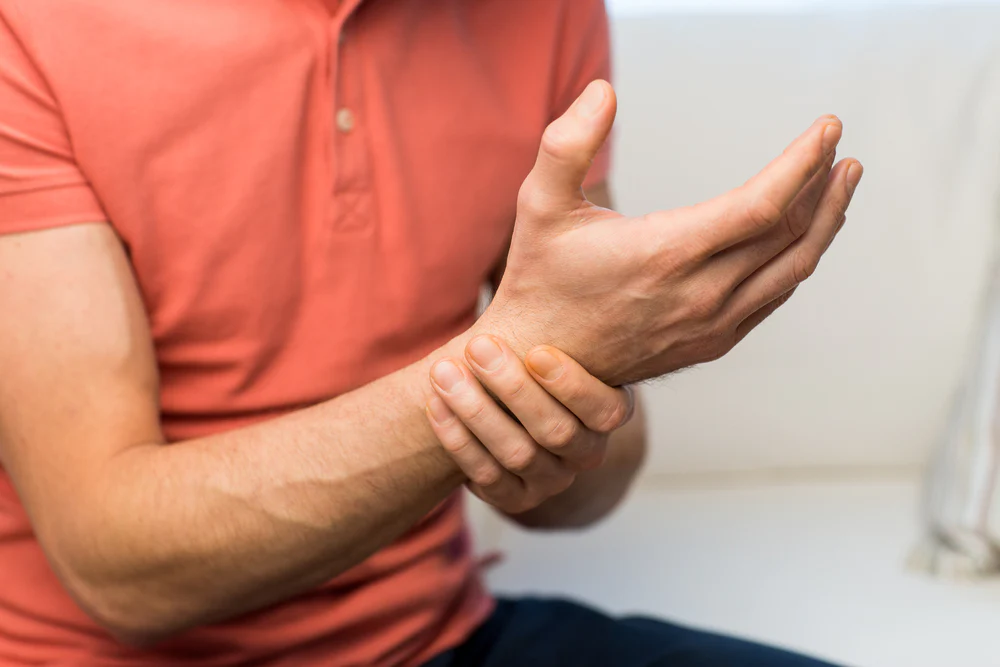Sleep Disorders and Conditions
Hypnic Jerk: Why Do I Twitch in My Sleep?
Have you ever experienced a sudden twitch or jerk right before falling asleep? If so, you're not alone. This phenomenon is known as a hypnic jerk, and it's a common experience that affects people of all ages. In this blog, we'll explore what hypnic jerks are, why they happen, and what you can do to reduce their occurrence.
What is a hypnic jerk?
A hypnic jerk, also known as a sleep start, is an involuntary muscle spasm that occurs as you're falling asleep. It usually happens during the transition from wakefulness to sleep and is often accompanied by a sudden feeling of falling or losing balance.
Hypnic jerks are usually harmless, and most people will experience them at least once in their lifetime. However, some people may experience them more frequently, which can be disruptive to their sleep and affect their overall quality of life.
Why do hypnic jerks happen?
The exact cause of hypnic jerks is not fully understood, but several factors may contribute to their occurrence. These include:
Anxiety and Stress
Anxiety and stress can increase muscle tension and make it more likely for you to experience hypnic jerks. When you're anxious or stressed, your body is in a state of heightened arousal, which can make it difficult to relax and fall asleep.
Caffeine and Alcohol
Consuming caffeine or alcohol before bed can also increase the likelihood of hypnic jerks. Caffeine is a stimulant that can disrupt your sleep cycle and make it harder to fall asleep. Alcohol, on the other hand, can relax your muscles and make it easier to fall asleep but may also disrupt your sleep cycle and cause hypnic jerks.
Fatigue
Being overly tired or fatigued can also increase the likelihood of hypnic jerks. When you're exhausted, your body is more likely to experience involuntary muscle movements and twitches.
Neurological Factors
Some research suggests that hypnic jerks may be related to neurological factors, such as changes in brain activity or dysfunction of the central nervous system.
How can I reduce the occurrence of hypnic jerks?
While hypnic jerks are usually harmless, they can be disruptive to your sleep and affect your overall quality of life. Here are some tips to help reduce their occurrence:
Practice Relaxation Techniques
Practicing relaxation techniques, such as deep breathing, meditation, or yoga, can help reduce anxiety and stress levels and promote relaxation. This, in turn, can reduce muscle tension and the likelihood of hypnic jerks.
Avoid Stimulants Before Bed
Avoid consuming caffeine or alcohol before bed, as these can disrupt your sleep cycle and increase the likelihood of hypnic jerks. Instead, opt for a relaxing activity, such as reading or taking a warm bath, to help you wind down before sleep.
Stick to a Sleep Schedule
Maintaining a consistent sleep schedule can help regulate your body's internal clock and promote better sleep hygiene. Aim to go to bed and wake up at the same time every day, even on weekends.
Create a Relaxing Sleep Environment
Creating a relaxing sleep environment can also promote better sleep hygiene and reduce the likelihood of hypnic jerks. Keep your bedroom cool, dark, and quiet, and invest in comfortable bedding and pillows.
Seek Medical Advice
If hypnic jerks are affecting your sleep or overall quality of life, seek medical advice. Your doctor may recommend medication or other treatments to help manage the symptoms.
Hypnic jerks are a common experience that affects people of all ages. While their exact cause is not fully understood, several factors may contribute to their occurrence, including anxiety and stress, caffeine and alcohol consumption, fatigue, and neurological factors. To reduce the occurrence of hypnic jerks, it's essential to practice relaxation techniques, avoid stimulants before bed, stick to a sleep schedule, create a relaxing sleep environment, and seek medical advice if necessary.
If you experience hypnic jerks, don't worry. It's a normal occurrence that doesn't usually require medical attention. However, if you find that hypnic jerks are interfering with your sleep or causing anxiety, it's important to talk to your doctor to find the best way to manage the symptoms.
In summary, hypnic jerks are a common and harmless experience that occur when falling asleep. By practicing good sleep hygiene and seeking medical advice if necessary, you can reduce the frequency of hypnic jerks and enjoy a better night's sleep.
Sleep Disorders and Conditions
Sleepless in Psychiatry: Unraveling the Role of Sleep in Neuropsychiatric Illnesses
Sleep Disorders and Conditions
When Sleep Disorders Clock In: Insomnia’s Impact on Productivity of Young Adults
Sleep Disorders and Conditions
Why Does My Body Twitch When I Sleep
Sleep Disorders and Conditions
When your Arm Falls Asleep: Causes and Treatments
Sleep Disorders and Conditions
Why Do We Twitch In Our Sleep? The Mystery of Hypnic Jerks Unveiled
Sleep Disorders and Conditions







